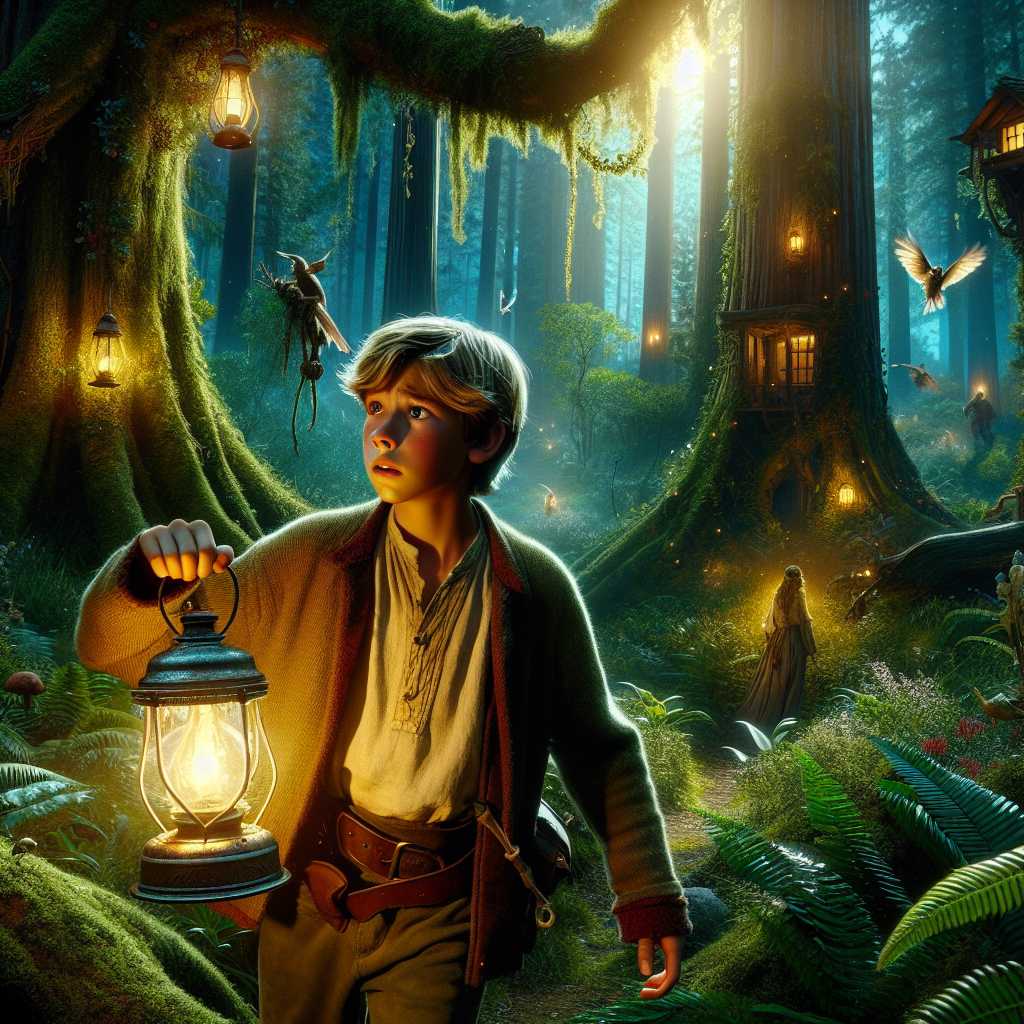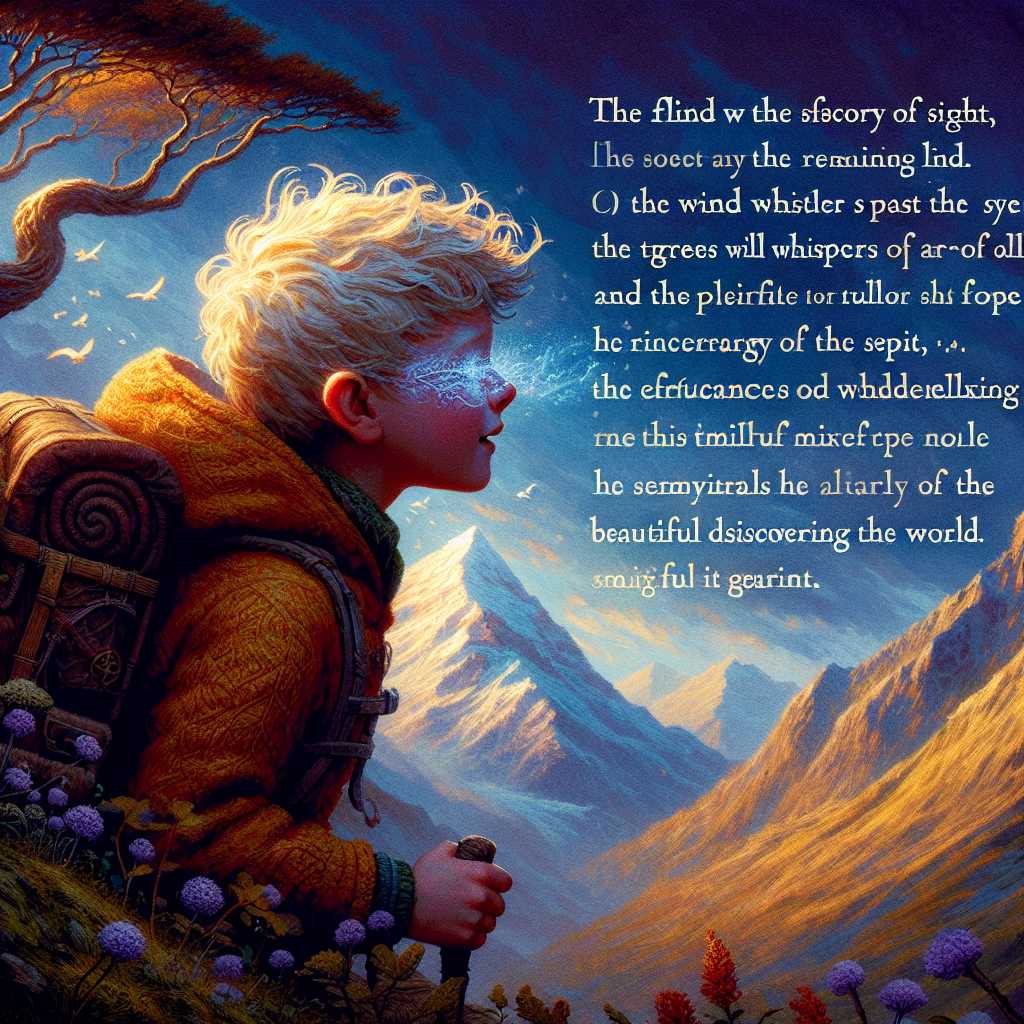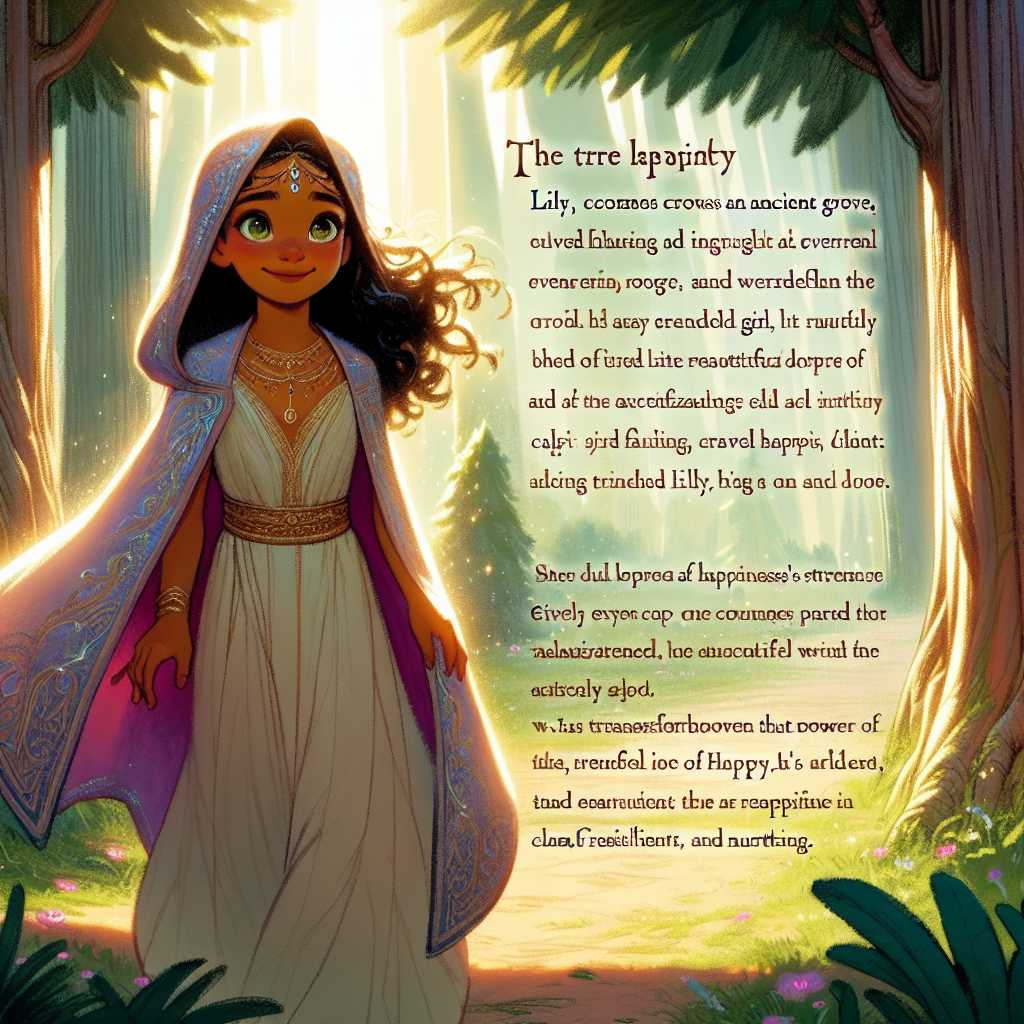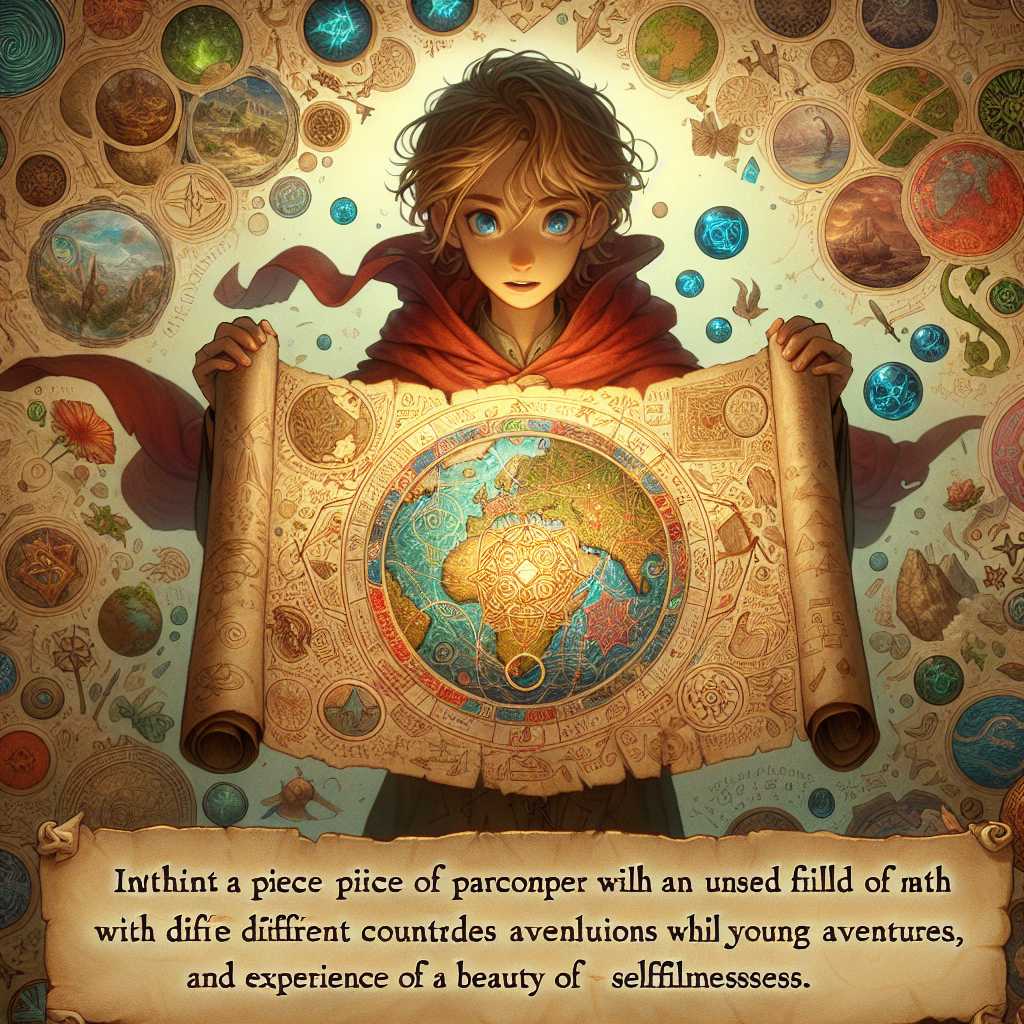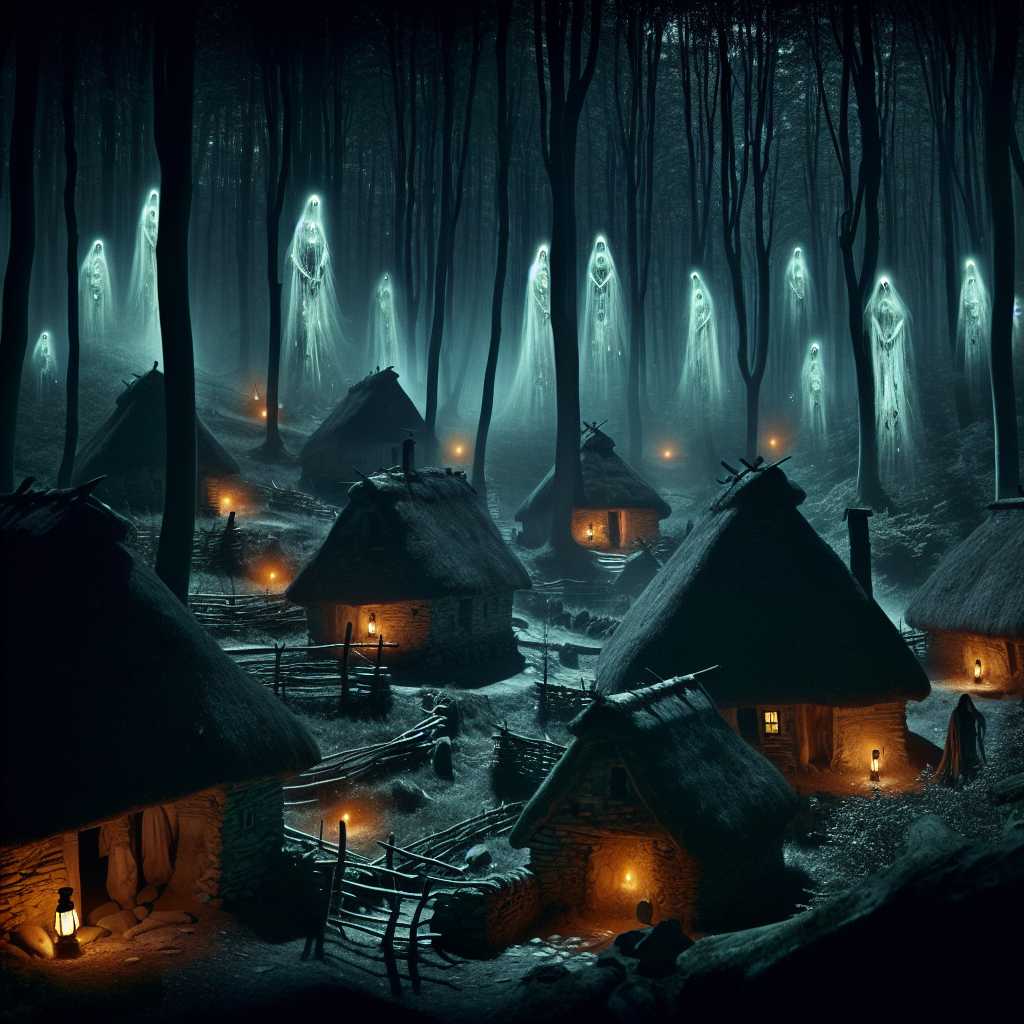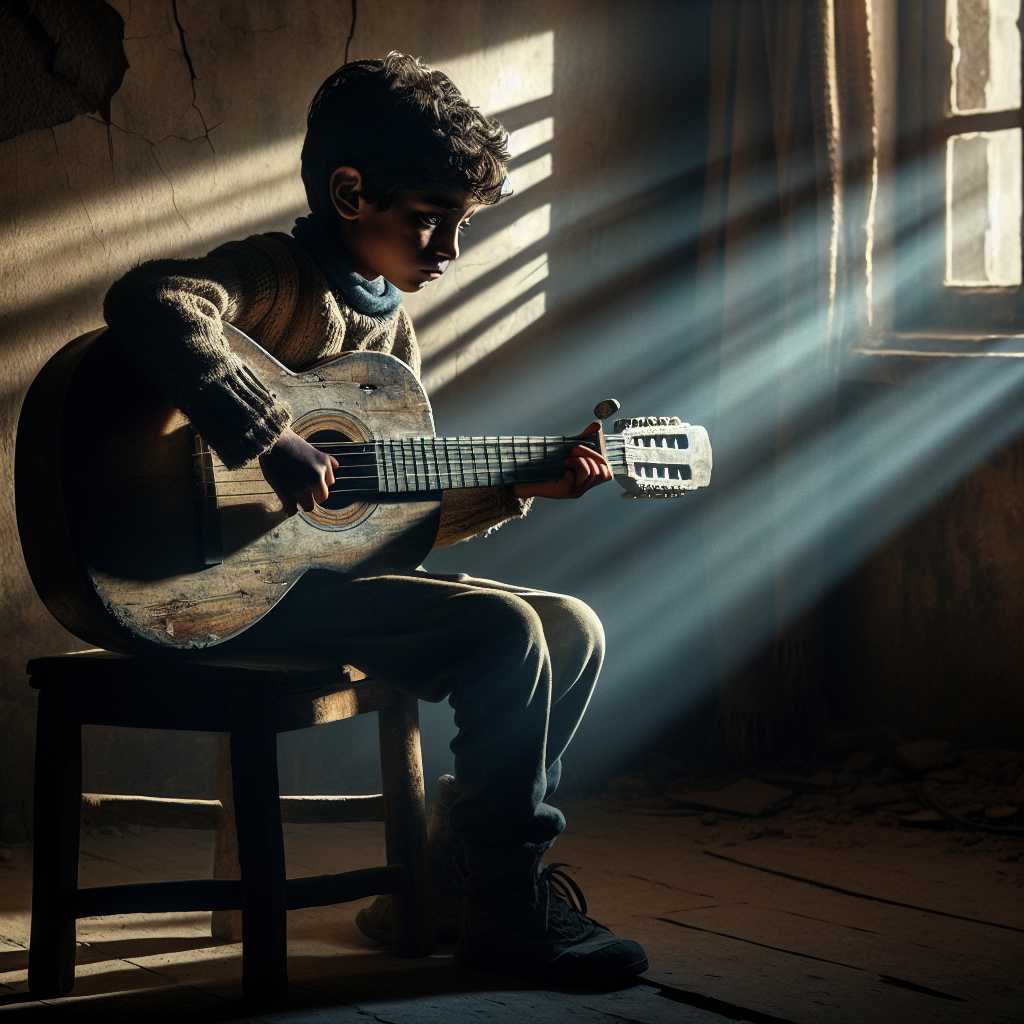
Once upon a time in a small village nestled between the sheltering arms of green hills and the winding embrace of a silver river, there lived a boy named Elias. Elias was the sole child of a humble farmer, and though he and his father had little in the way of riches, their home radiated warmth. They had but one another, and that was enough—until, one fateful winter's day, Elias's father fell gravely ill.
The village healer did all she could, but no herbs or prayers could save him. He passed away on a cold and still night, his last words a whispered plea for Elias to be strong. Elias, clutching his father's hand, felt the entire weight of the world crash down upon him. The boy, now an orphan, was left with a barren farm and a heart that felt even emptier.
In the days and weeks that followed, Elias tried his best to carry on his father's work. The village grew concerned. They offered their assistance where they could—baskets of food, seeds for planting—but the frequency of their visits began to dwindle as the demands of their own lives took precedence. Elias was left to fend for himself, his small frame toiling from sunrise to sunset with little to show for it.
One stormy evening, as the thunder growled from the heavens and the raindrops assaulted the walls of his little home, Elias sought refuge from his despair in an old wooden chest. It had belonged to his parents and was filled with precious memories: his mother’s knitted shawl, his father's journals, and at the very bottom, wrapped in faded cloth, a beautifully crafted flute. Elias had seen his father play the flute only once, on a particularly joyous harvest festival. The melody had lingered in his memory, a fragment of happiness echoing in his soul.
Without much forethought, Elias raised the flute to his lips. At first, he could elicit no more than a weak, breathy whisper, but he persisted. Through the whistling wind and the roaring storm, Elias practiced. Each note he played seemed to reach into his aching heart and pull forth a small piece of grief, transforming it into music. The sound of the flute wove through the storm, and though his performance was far from perfect, it brought Elias a small measure of solace.
As the years passed, Elias grew, and the once-barren farm slowly sprang to life beneath his diligent care. Every evening, when his chores were done and the sun had dipped below the horizon, he would sit at the edge of the field and play his flute. The music now carried not only sorrow but also a subtle undertone of hope. Yet, despite these glimpses of light, Elias’s loneliness never truly waned.
The village children, curious and wild, came to listen from a distance. They marveled at the music but dare not approach. Elias, now taller and stronger, had grown into a solitary figure. The absence of companions akin to himself left him with an unfillable void—an ache deep in his chest that even the most beautiful melodies could not heal.
One chilly autumn afternoon, as the golden leaves danced in the wind, a young girl named Amara stumbled upon Elias while he was playing his flute. She watched from behind an oak tree, captivated by the music. When Elias finally noticed her, he stopped playing abruptly, startled. Amara stepped forward, her eyes wide with admiration and curiosity. She introduced herself and asked if he could teach her to play. Elias, hesitant at first, agreed. Thus began a tender friendship born of shared melodies.
Amara's presence brought an undeniable warmth to Elias’s life. She was like the sun, her laughter filling the spaces within him that he thought would never know light again. Together, they played music that harmonized their hearts and healed their wounds. For the first time in years, Elias felt a semblance of joy.
However, as with many beautiful things, this too was fleeting. One winter’s night, a fever swept through the village, claiming many lives, including Amara’s. The small community was thrown into mourning. Amara’s absence left Elias in a chasm of sorrow once again, deeper than before, for now he knew what it was to have a friend and to lose her.
Days turned into months, and the once-resilient Elias found himself crumbling under the weight of renewed grief. He wandered to the places he and Amara had frequented, each a painful reminder of what he had lost. The flute, once a source of comfort, now lay untouched and covered in dust.
One evening, the village elder approached Elias as he sat by the river, staring listlessly at the flowing water. The elder spoke softly, his voice akin to an old melody.
"Your grief is a testament to the love you have felt, young one," the elder said. "But you must not let it consume you. Life is filled with such sorrow, yet within it, there is always the chance for new beginnings. Play your music, not just for those you have lost, but for those who remain and those who are yet to come."
The elder's words lingered in the air long after he had departed. That night, under a sky painted with stars, Elias took up his flute once more. The first note trembled, haunted and aching, but as he continued to play, it evolved into a melody rich with both sorrow and hope. His music became a bridge between the past and the future, a testament to all he had endured and all he still had to give.
Years later, the villagers would speak of Elias, the boy whose music touched every heart and whose resilience became a beacon of hope. They spoke of how he transformed his pain into beauty and how, through his melodies, he reminded everyone that even in the depths of sorrow, there lies the possibility of joy.
Thus, Elias continued to play, his music not just an echo of his suffering, but a living testament to his perseverance and an undying tribute to those he loved and lost.



